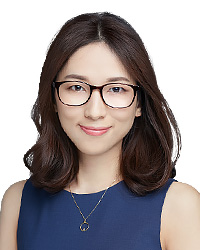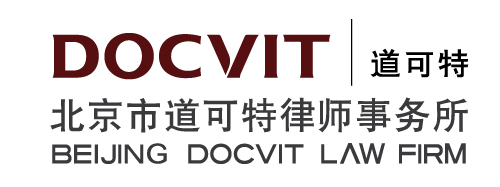Cosmetology has emerged as a focal point of consumer complaints, surpassing many traditional categories of goods and services, in the China Consumers Association’s analysis of complaints received by the National Consumers Association in 2021.
The Law Enforcement Guide for Medical Cosmetology Advertising, issued by the State Administration for Market Regulation in November 2021, provides guidance for local administration in market regulation at all levels to strengthen supervision over medical cosmetology advertising. It also guides consumers on how to avoid the many traps involving illegal medical cosmetology in the market.
In this article, the authors summarise pitfalls to avoid in unlawful medical cosmetology services.
LICENSED AND REGISTERED?

Senior Partner
DOCVIT Law Firm
Article 23 of the Measures for the Administration of Medical Cosmetic Services provides that no entity or individual may carry out medical cosmetic services without a Practice Licence of Medical Organisations and approval by the registration authority to carry out medical cosmetic diagnoses and treatment.
In practice, certain life cosmetic organisations often deliberately confuse life cosmetology with medical cosmetology, and carry out unregistered medical cosmetic services without permission from the health department. Some medical cosmetic institutions carry out medical cosmetic services beyond the scope of medical diagnoses and treatment approved by the health department.
As a result, when consumers choose a provider of medical cosmetics, they may inquire via the medical organisation inquiry system of the health administrative department as to whether it has a licence; and whether its diagnoses and treatment services are within its registered and approved scope.
QUALIFIED PRACTITIONERS?
Article 11 of the measures provides that: “The attending physician responsible for the implementation of medical cosmetic services must meet the following conditions:
(1) qualified as a medical practitioner and registered with the medical practitioner registration authority;
(2) having experience in relevant clinical disciplines;
(3) having qualified in training or advanced studies in medical cosmetology, or been engaged in clinical medical cosmetic for more than a year; and
(4) other conditions specified by the health administrative department of the provincial government.”

Partner
DOCVIT Law Firm
Article 14 provides that: “Personnel failing to be approved by the health administrative department or go through the practice registration formalities shall not engage in medical cosmetic diagnosis and treatment services.”
Therefore, the attending physician responsibility system is implemented in the medical cosmetic service industry – and the attending physician must be a qualified physician with experience in the relevant clinical disciplines, qualification in medical cosmetology or engaged in it for more than a year, and registered with the health administrative department on his or her approval by the medical cosmetic organisation.
In practice, personal injury accidents caused by irregular operation of “medical practitioners” and “cosmetologists” occur often in medical cosmetic services. Hence, in addition to choosing a legally qualified medical cosmetic organisation, consumers should also review whether personnel engaged in medical cosmetic services are qualified attending physicians – and may likewise inquire about the doctor’s registration through the inquiry system of the health administrative department for confirmation.
DRUGS/DEVICES APPROVED?
Article 17 of the measures provides that: “Practitioners of medical cosmetic organisations shall strictly implement relevant laws, regulations and rules, and abide by the operating rules of medical cosmetic technology. Medical materials used by medical cosmetic organisations must be approved by relevant departments.”
Therefore, medical cosmetic organisations should: use drugs and medical devices that meet registration, approval or filing requirements of the Drug Administration Law, Regulations for the Supervision and Administration of Medical Devices, and other laws and regulations of China; purchase drugs and medical devices from enterprises with production and operation qualifications; and use them in a standard way according to operating procedures.
In practice, some providers of medical cosmetic services use shoddy equipment, or drugs and medical devices from unknown sources, or don’t conform to national regulations, leading to a series of personal injury incidents.
Therefore, before receiving medical cosmetic services, a consumer may check the qualification certificates of the drugs and medical devices used – and help prevent illegal organisations from using fake and shoddy medical cosmetic drugs and medical devices of unknown source.
This can be done by querying the official website of drug regulatory authorities and scanning the code of the drugs and medical devices to trace the source.
FALSE & ILLEGAL ADVERTISING
The above-mentioned law enforcement guide lists a series of issues requiring attention in the supervision over medical cosmetology advertisements.
Listed among these are: creating “appearance anxiety” in violation of good social morality; making guarantees on the safety and efficacy of diagnosis and treatment; comparing effects before and after diagnosis and treatment with the patient’s name or image as proof; and publishing medical cosmetology advertisements in disguised form of healthcare knowledge introduction, exclusive interviews and news reports are all subject to crackdown as serious violations of law.
For example, advertisements along the lines of “facial features more important than inner quality” and “10 years younger, effective immediately after operation, and success rate up to 90%” all fall into this category.

In practice, medical cosmetology advertisements containing such illegal elements are not uncommon – and hashtags on “appearance anxiety” repeatedly trend on social media platforms.
Faced with this dazzling trend of medical cosmetology advertising, consumers should keep alert and vigilant, carefully identify quality services, and maintain a prudent, scientific mindset.
False and illegal medical cosmetology advertising should be resolutely resisted. Even when it comes to legal and compliant ones, all factors should still be carefully considered before making any commitment.
Xue Zheng is a senior partner and Cao Hui is a partner at DOCVIT Law Firm

DOCVIT Law Firm
56/F Fortune Financial Center
No.5 East Third Ring MiddleRoad
Chaoyang District, Beijing 100020, China
Tel: +86 10 8586 1018
Fax: +86 10 8586 3605-8006
E-mail:
xuezheng@dtlawyers.com.cn
caohui@dtlawyers.com.cn





















